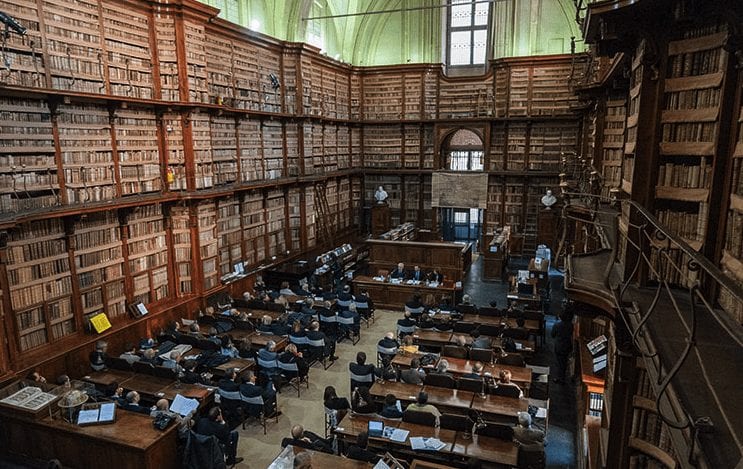Alessio Assonitis, Ph.D., Director of the Medici Archive Project (MAP), spent time with edCircuit to discuss the power of digital humanities and how it has impacted global educational opportunities for students.
Since its foundation in the early 1990s, the Medici Archive Project (MAP) has been innovating new strategies for research in the Humanities. During the early stages of its existence, MAP’s mission was to merge archival research with technological innovations for data management. A pioneering group of scholars began to catalog in a rudimentary electronic database the letters of one of the most exhaustive and complete courtly archives of early modern Europe: the Medici Granducal Archival Collection (Mediceo del Principato). This archival collection ― comprising over four-million letters distributed in 6,429 volumes and occupying a mile of shelf space ― covers a chronological span of two hundred years, from 1537 to 1743. It documents the political, diplomatic, gastronomic, economic, artistic, scientific, military and medical culture of early modern Tuscany and Europe.
In the decade following its founding, graduate students, university professors, museum curators, and independent researchers paid regular visits to MAP’s workspace at the State Archive in Florence in order to have access to unpublished documentary material or to seek help with archival research strategies related to their scholarly endeavors. At the same time, thanks to the NEH Fellowship Program and other similar fellowships, generations of MAP researchers, experienced in archival and paleographic studies, have worked continuously to populate this database with new material gleaned from the Medici manuscripts. Initially collected in an in-house database (Documentary Sources for the Arts and Humanities, 1537 to 1743) accessible only in situ, this vast repository of transcribed and contextualized documents was published online in April 2006, free of charge, for the benefit of the entire scholarly community.
During the past four years, MAP’s trajectory has radically changed. Rather than serving as a provider of primary sources to restricted academic audiences, MAP set out to become a research institution with the mission of actively generating scholarly discourse and embracing disparate dimensions of scholarly experience. At the center of this operation has been MAP’s online platform, BIA, funded by the Andrew W. Mellon Foundation. Fully online since 2013, BIA provides access to an unparalleled range of digitized early modern material. As of 2015, this material comprises over 24,000 transcribed documentary records, 18,000 biographical entries, 87,000 geographical and topographical tags, and over 300,000 digitized images from 292 volumes of the Mediceo del Principato. Aside from providing a faster and more user-friendly interface for document entry, BIA has enabled scholars from all over the world, not only to view digitized images of archival documents, but also to enter transcriptions, provide scholarly feedback, and exchange comments in designated forums, all within BIA’s academic community of over 2400 international scholars, students, and enthusiasts who daily engage with one another, with the ever-increasing number of uploaded digitized documents, and with the staff and fellows of the Medici Archive Project.
Subscribe to edCircuit to stay up to date on all of our shows, podcasts, news, and thought leadership articles.






